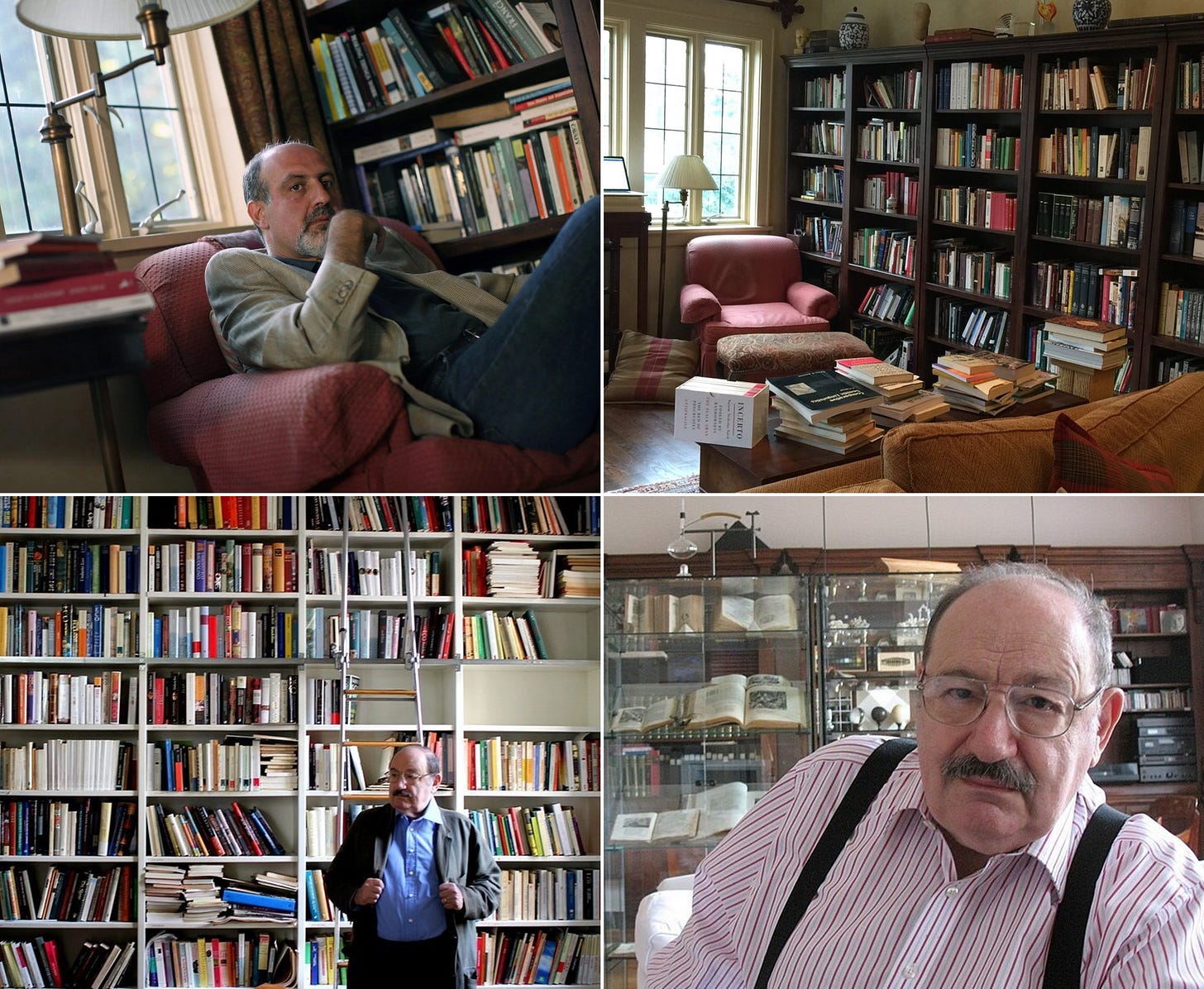Hello friends,
Apologies for the delay.
Writing a newsletter on a frequent basis is not my superpower.
I’m working on upgrading the Sovereign Artist program. During this process, I realized that (Exciting News Alert) my book must go by the same title. Economy of Truth didn’t die but morphed into a much stronger project worthy of even more elegance and adventure.
The research for this project looks splendid. I’m currently reading a fascinating book by Julius Evola—who has some crazy views—called The Fall of Spirituality: The Corruption of Tradition in the Modern World. If you’re too confident about what “tradition” means, this book might surprise you.
Another book I fell in love with is called I Drink Therefore I am: A Philosopher’s Guide to Wine by Roger Scruton. This book definitely reinforced my attraction to Epicureanism (I’m not a big fan of Stoicism yet nor against it) and helped me clarify my intellectual stance on wine, pleasure, and the art of living.
Speaking of research…
Here are 3 aphorisms, 1 essay, and 3 questions for you to reflect on.
3 Aphorisms
I.
It’s impossible to have a fun conversation with someone who, prior to the beginning of the discussion, already made an unconscious decision to disagree with whatever you’re going to say or argue.
II.
Artists who only study art happen to be clumsy artists; as well as philosophers who only read philosophy tend to be foolish philosophers.
You can’t bring out the flavor of your mind if you’re afraid to tackle subjects that lie outside of your professional comfort zone. Ashwin Sharma wrote: “Let all your ideas crash and burn and mix in ways they were never meant to. Don’t try to solve the tension. Give your mind permission to stay restless.”
Psychologists should read more poetry. Scientists should check out the Bible. Architects should study biology. Entrepreneurs should study history. And lawyers should study ethics.
III.
To figure out if someone is truly smart, ask them a couple of questions about some “hot” topics; something that recently came up in the news or went viral on the Internet.
The more often they genuinely reply “I don’t know”—the less informed they are—the smarter they are.
In the modern world, ignorance is a blessing.
If you regularly find yourself up to date to many of the latest trends, this is a sign to pause and reflect.
Book Shopping with Umberto Eco
NASSIM TALEB confessed in The Black Swan he got mesmerized by Umberto Eco’s erudition. The Italian philosopher was part of a “small class of scholars who are encyclopedic, insightful, and nondull.” His personal library boasts more than thirty thousand books. The way most visitors react when they see it is perhaps predictable: “Wooow! What a huge library you have! How many of these books have you read?”
To make sense of this, Taleb came up with a witty term called the antilibrary. What does that mean?
It seems that, the more you read, the more your library grows. But there’s a difference in pace—you read 1 book; you get 3 more books. You read 2 books; you get 6 more books. Why?
People generally feel bad about the growing number of unread books on their shelves. “I still have so many books to read!” What they don’t know is that this is a virtue masquerading as consumerism. Taleb wrote: “Unread books are far more valuable than read ones; a private library is not an ego-boosting appendage but a research tool.”
Indeed, the more you read, the more your curiosity grows. Hence you get more books. This means that the more you learn, the more you don’t know, as the number of unread books on your shelves keeps growing and growing.
Even if you “read” all of the books from your library, it doesn’t mean much. The beauty of reading is about rereading. The beauty of reading is about the actions you take and all of the reflections that get triggered thanks to the material in front of you.
But there’s another subtle nuance: the more you learn, the more you know how much you don’t know. Your intellectual humility is getting stronger, as you are perfectly aware of how ignorant you are since there’s so much you’re yet to discover! Your antilibrary is a constant reminder about both your limits of knowledge and ongoing curiosity.
3 Questions to Reflect on
i. What “truth(s)” do too many people agree with me on?
ii. What feels like play to me but looks like work to others?
iii. In the last five years, what belief, behavior, or habit has most worsened my life?
Wrapping up...
Hope you liked this episode!
Any feedback, suggestion, or criticism is welcome.
Thank you for your time,
Vizi Andrei
Host of The Sovereign Artist (Program)




